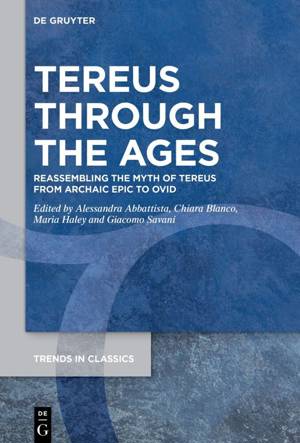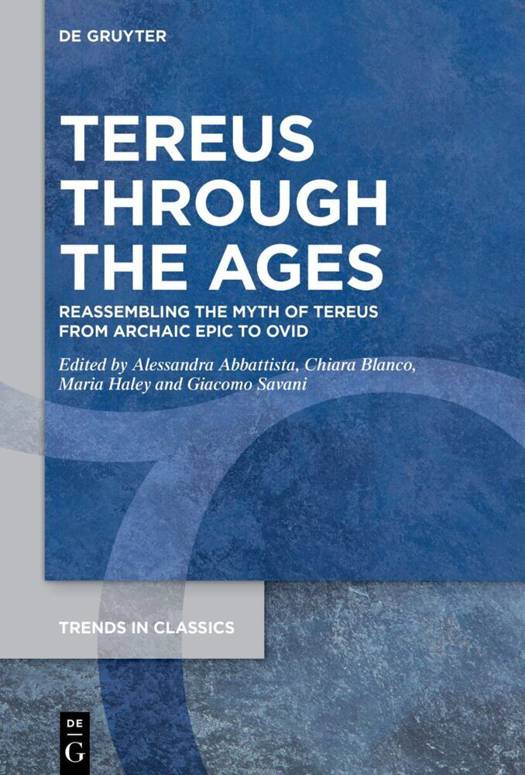
- Afhalen na 1 uur in een winkel met voorraad
- Gratis thuislevering in België vanaf € 30
- Ruim aanbod met 7 miljoen producten
- Afhalen na 1 uur in een winkel met voorraad
- Gratis thuislevering in België vanaf € 30
- Ruim aanbod met 7 miljoen producten
Tereus Through the Ages
Reassembling the Myth of Tereus
Omschrijving
This volume constitutes the first attempt at bringing together scholars from Greek literature, Latin literature and archaeology working on the tradition of the Tereus myth. More specifically, it will focus on the reconstruction, transmission and reception of the myth in Greece and Rome by examining the different adaptations and interactions of the story through the lens of assemblage theory.
References to the Tereus myth date back to the Homeric poems; it was addressed by renowned dramatists, such as Aeschylus, Sophocles and Accius, before being adapted by Ovid. These different versions raise questions about the reconstruction of the myth and the representation of women, revenge, paidophagia and metamorphosis. Aspects of the story reverberate in ancient material culture, especially Greek vase paintings, which stem from different variants and traditions.
Building on assemblage theory, the volume draws forth collaboration between specialists in Classical studies to examine how the myth was adapted in Greece and Rome without prestiging a Greek original. As such, it will be of significant interest for researchers and postgraduate students working on Greek and Roman tragedy, Ovid, classical reception and ancient material culture.
Specificaties
Betrokkenen
- Uitgeverij:
Inhoud
- Aantal bladzijden:
- 265
- Taal:
- Engels
- Reeks:
- Reeksnummer:
- nr. 184
Eigenschappen
- Productcode (EAN):
- 9783110728705
- Verschijningsdatum:
- 21/07/2025
- Uitvoering:
- Hardcover
- Formaat:
- Genaaid
- Afmetingen:
- 156 mm x 234 mm
- Gewicht:
- 548 g

Alleen bij Standaard Boekhandel
Beoordelingen
We publiceren alleen reviews die voldoen aan de voorwaarden voor reviews. Bekijk onze voorwaarden voor reviews.








